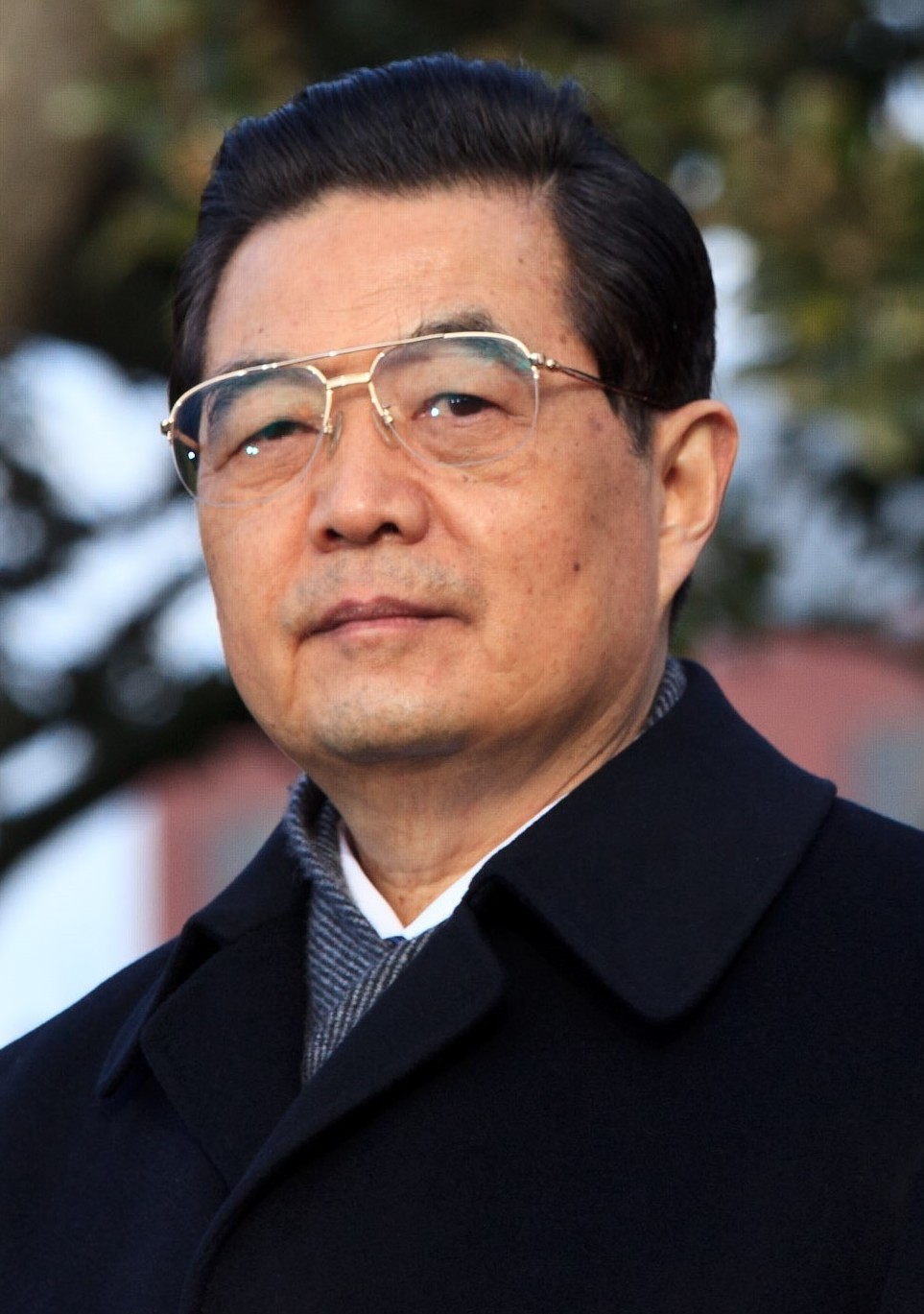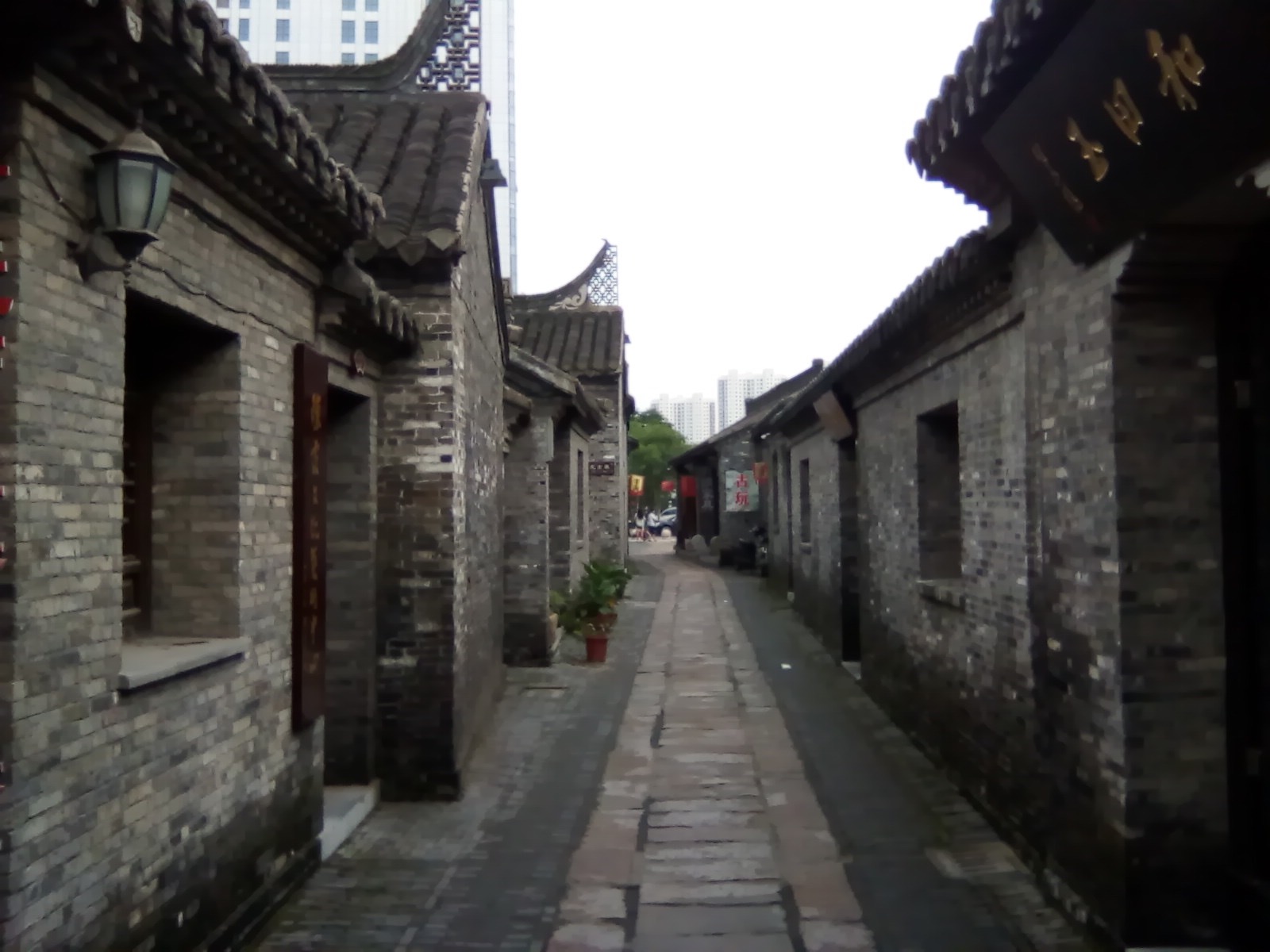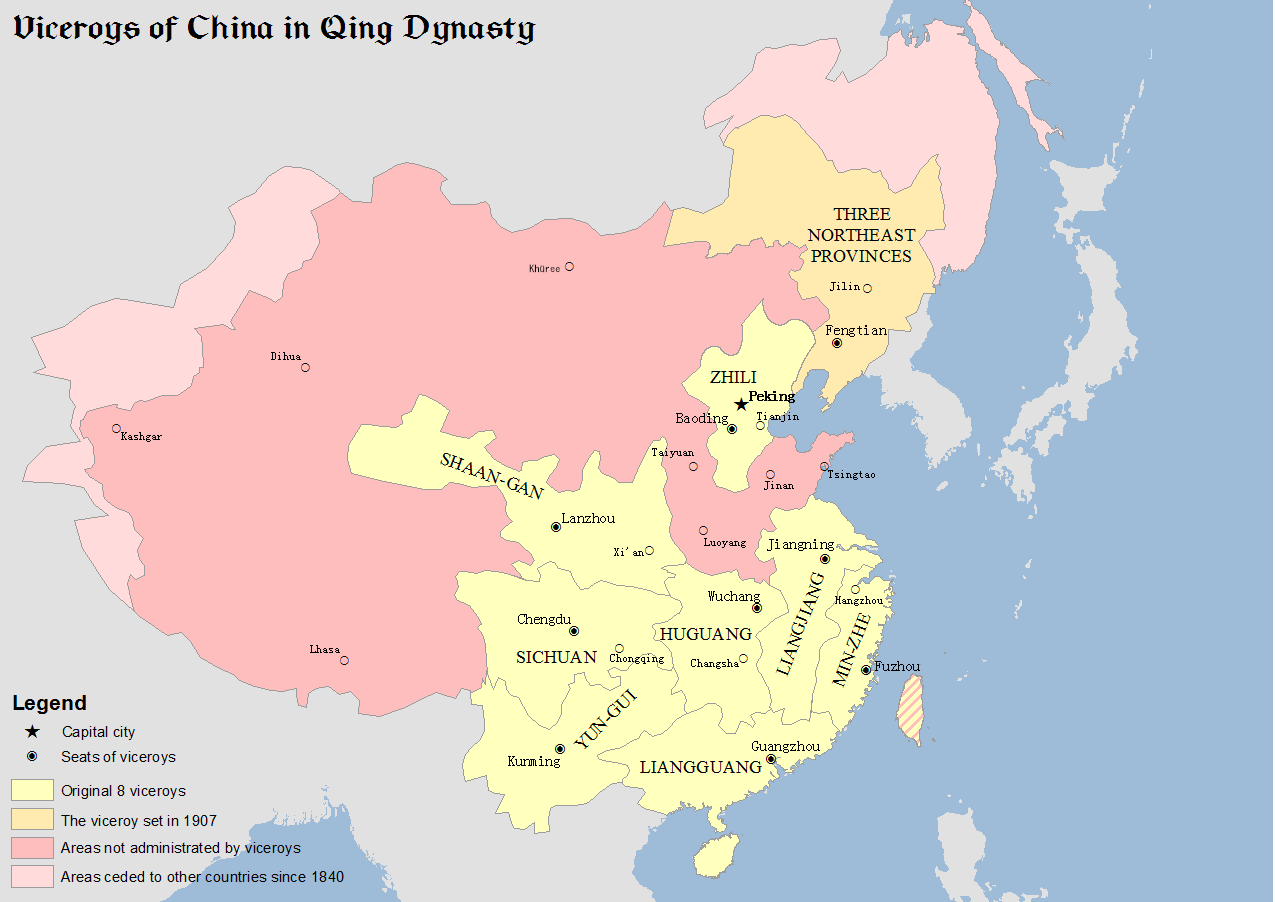|
Hu Zongxian
Hu Zongxian (; November 4, 1512 – November 25, 1565), courtesy name Ruzhen () and art name Meilin (), was a Chinese general and politician of the Ming dynasty who presided over the government's response to the wokou pirate raids during the reign of the Jiajing Emperor. As supreme commander, he was able to defeat Xu Hai's () substantial raid in 1556 and capture the pirate lord Wang Zhi the next year through ruses. Despite his accomplishments, Hu Zongxian's reputation had been tarnished by his association with the clique of Yan Song and Zhao Wenhua, traditionally reviled figures in Ming historiography. He was rehabilitated decades after his death and was given the posthumous name Xiangmao () by the emperor in 1595. He is a direct ancestor of Hu Jintao, General Secretary of the Communist Party of China and Chinese paramount leader from 2002 to 2012. Early life and career Hu Zongxian was born in the year 1512, in the Hu ancestral village of Longchuan () in Jixi County, part of ... [...More Info...] [...Related Items...] OR: [Wikipedia] [Google] [Baidu] |
Hu (surname)
Hu (Wikt:胡, 胡) is a Chinese surname. In 2006, it was the 15th most common surname in China. In 2013, it was the 13th most common in China, with 13.7 million Chinese sharing this surname. In 2019, Hu was the fifteenth most common surname in Mainland China. Some other, less common surnames pronounced Hu include Wikt:瓠, 瓠, Wikt:護, 護, Wikt:戶, 戶, Wikt:扈, 扈, Wikt:虎, 虎, Wikt:呼, 呼, Wikt:忽, 忽, Wikt:斛, 斛 and Wikt:壺, 壶. In Cantonese, “胡” is also pronounced as "Wu" or "Woo" or "Ow". Meaning In Classical Chinese, ''hú'' 胡 meant: "dewlap; wattle (anatomy), wattle" and was a variant Chinese character for "how; why; what" (''he'' Wikt:何, 何), "long-lasting; far-reaching" (''xia'' Wikt:遐, 遐), "part of a dagger-axe", ''hu-'' in "butterfly" (''hudie'' Wikt:蝴蝶, 蝴蝶), or possibly "Northern Barbarians". History According to tradition, the Hu (胡) surname has several historical origins. First, Hu could derive from the family of Duke Hu of ... [...More Info...] [...Related Items...] OR: [Wikipedia] [Google] [Baidu] |
Jiajing Wokou Raids
The Jiajing wokou raids caused extensive damage to the coast of China in the 16th century, during the reign of the Jiajing Emperor (r. 1521–67) in the Ming dynasty. The term "wokou" originally referred to Japanese pirates who crossed the sea and raided Korea and China; however, by the mid-Ming, the wokou consisted of multinational crewmen that included the Japanese and the Portuguese, but a great majority of them were Chinese instead. Mid-Ming wokou activity began to pose a serious problem in the 1540s, reached its peak in 1555, and subsided by 1567, with the extent of the destruction spreading across the coastal regions of Jiangnan, Zhejiang, Fujian, and Guangdong. Historical background Maritime trade in 16th century China Up until the establishment of the Ming dynasty in 1368, China had had a great maritime trading tradition that extended the Chinese trading network by sea all the way into the Indian Ocean. In 1371, the Ming founder Hongwu Emperor implemented the " maritim ... [...More Info...] [...Related Items...] OR: [Wikipedia] [Google] [Baidu] |
Newsweek
''Newsweek'' is an American weekly online news magazine co-owned 50 percent each by Dev Pragad, its president and CEO, and Johnathan Davis (businessman), Johnathan Davis, who has no operational role at ''Newsweek''. Founded as a weekly print magazine in 1933, it was widely distributed during the 20th century, and had many notable editors-in-chief. The magazine was acquired by The Washington Post Company in 1961, and remained under its ownership until 2010. Revenue declines prompted The Washington Post Company to sell it, in August 2010, to the audio pioneer Sidney Harman for a purchase price of one dollar and an assumption of the magazine's liabilities. Later that year, ''Newsweek'' merged with the news and opinion website ''The Daily Beast'', forming The Newsweek Daily Beast Company. ''Newsweek'' was jointly owned by the estate of Harman and the diversified American media and Internet company IAC (company), IAC. ''Newsweek'' continued to experience financial difficulties, whic ... [...More Info...] [...Related Items...] OR: [Wikipedia] [Google] [Baidu] |
Paramount Leader
Paramount leader () is an informal term for the most important political figure in the People's Republic of China (PRC). The paramount leader typically controls the Chinese Communist Party (CCP) and the People's Liberation Army (PLA), often holding the titles of CCP General Secretary and Chairman of the Central Military Commission (CMC)."How China is ruled" . The () or |
General Secretary Of The Communist Party Of China
The general secretary of the Chinese Communist Party () is the head of the Chinese Communist Party (CCP), the sole ruling party of the People's Republic of China (PRC). Since 1989, the CCP general secretary has been the paramount leader of the PRC. Overview According to the Constitution of the Chinese Communist Party, the general secretary serves as an ''ex officio'' member of the Politburo Standing Committee, China's ''de facto'' top decision-making body. The general secretary is also the head of the Secretariat. Since 1989, the holder of the post has been, except for transitional periods, the Chairman of the Central Military Commission, making the holder the supreme commander of the People's Liberation Army. The position of general secretary is the highest authority leading China's National People's Congress, State Council, Political Consultative Conference, Supreme People's Court and Supreme People's Procuratorate in the Chinese government. As the top leader of th ... [...More Info...] [...Related Items...] OR: [Wikipedia] [Google] [Baidu] |
Hu Jintao
Hu Jintao (born 21 December 1942) is a Chinese politician who served as the 16–17th general secretary of the Chinese Communist Party (CCP) from 2002 to 2012, the 6th president of the People's Republic of China (PRC) from 2003 to 2013, and chairman of the Central Military Commission (CMC) from 2004 to 2012. He was a member of the CCP Politburo Standing Committee, China's ''de facto'' top decision-making body, from 1992 to 2012. Hu was the paramount leader of China from 2002 to 2012. Hu rose to power through the Chinese Communist Party (CCP), notably as Party Committee secretary for Guizhou province and the Tibet Autonomous Region, where his harsh repression of dissent gained him attention from the highest levels. He moved up to first secretary of the CCP Central Secretariat and vice president under CCP general secretary Jiang Zemin. Hu was the first leader of the Communist Party from a generation younger than those who participated in the civil war and the founding of ... [...More Info...] [...Related Items...] OR: [Wikipedia] [Google] [Baidu] |
Posthumous Name
A posthumous name is an honorary name given mostly to the notable dead in East Asian culture. It is predominantly practiced in East Asian countries such as China, Korea, Vietnam, Japan, and Thailand. Reflecting on the person's accomplishments or reputation, the title is assigned after death and essentially replaces their name used during life. Although most posthumous names are assigned to royalty, some posthumous names are given to honor significant people without hereditary titles, such as courtiers or military generals. A posthumous name should not be confused with era names (年號), regnal names (尊號), or temple names (廟號). Format One or more adjectives are inserted before the deceased's title to make their posthumous name. Posthumous names are exclusively owned on the state level, although not necessarily on a broader national level. The name of the state or domain of the owner is added to avoid ambiguity from multiple similar posthumous names. The Chinese languag ... [...More Info...] [...Related Items...] OR: [Wikipedia] [Google] [Baidu] |
Zhao Wenhua
Zhao Wenhua (; died 1557) was a Chinese public official during the reign of the Ming dynasty's Jiajing Emperor. After initial setbacks in his career, Zhao became a close confidant to Grand Secretary Yan Song, eventually becoming a vice minister. At the time, the Chinese coast was plagued by a series of raids by Chinese smugglers. Zhao disagreed with how the military was handling the situation and made his own recommendations, which the military ignored. After the Emperor lost confidence in Minister of War Nie Bao, he tasked Zhao with solving the crisis himself. Zhao quickly came into conflict with other officials that were already at the coast, and went on to orchestrate the removal of several of them, as well as a prominent court official. Zhao rose to the rank of Minister of Works and positioned his protege Hu Zongxian as supreme commander, a role that Hu excelled in. Zhao, however, had earned the disdain of other figures in the court, and his disregard for etiquette alienat ... [...More Info...] [...Related Items...] OR: [Wikipedia] [Google] [Baidu] |
Yan Song
Yan Song (; 1480–1567), courtesy name Weizhong (惟中), pseudonym Jiexi (介溪), was a Chinese politician and regent of the Ming dynasty. He was notorious for being corrupt and for dominating the Ming government for two decades as Grand Secretary during the reign of the Jiajing Emperor. Biography Early life Yan Song was born in Fenyi, modern-day Jiangxi province. His father, a scholar who had repeatedly failed the imperial examination, put great effort into educating his son from childhood. A talented scholar, he passed the village examinations at the age of 10, and acquired the ''jinshi'' degree at the age of 25, being inducted into the imperial secretariat (Hanlin Academy) as an editor. His early career was quickly cut short by a severe illness which forced Yan Song to return to his hometown, though this proved to be a blessing in disguise, since it kept him away from the imperial court just as it was under the domination of powerful eunuch Liu Jin. Yan Song returned t ... [...More Info...] [...Related Items...] OR: [Wikipedia] [Google] [Baidu] |
Wang Zhi (pirate)
Wang Zhi (), art name Wufeng (), was a Chinese pirate lord of the 16th century, one of the main figures among the ''wokou'' pirates prevalent during the reign of the Jiajing Emperor. Originally a salt merchant, Wang Zhi turned to smuggling during the Ming dynasty's period of maritime prohibitions banning all private overseas trade, and eventually became the head of a pirate syndicate stretching across the East and South China Seas, from Japan to Thailand. Through his clandestine trade, he is credited for spreading European firearms throughout East Asia, and for his role in leading the first Europeans (the Portuguese) to reach Japan in 1543. On the other hand, the Ming emperor and government blamed Wang Zhi for the ravages of the Jiajing wokou raids, for which they imprisoned and later executed Wang Zhi in 1560 when he was ashore in China trying to negotiate a relaxation of its maritime prohibitions. Early life Wang Zhi was a native of She County of Huizhou (in present-day Huan ... [...More Info...] [...Related Items...] OR: [Wikipedia] [Google] [Baidu] |
Xu Hai
Xu or XU may refer to: People and characters * Xu (surname), one of two Chinese surnames ( or /), transliterated as Xu in English * ǃXu, a name for the ǃKung group of Bushmen; may also refer to the ǃKung language or the ǃKung people * ǃXu (god), the creator god of the ǃKung * Xu, a minor character in the game ''Final Fantasy VIII'' Places * Xu (state) (), a state of ancient China * Xǔ (state) (), was a vassal state of the Zhou dynasty Universities * X University (Toronto Metropolitan University aka Ryerson Polytechnic Institute), Toronto, Ontario, Canada * Xavier University (other) ** Xavier University in Cincinnati, United States ** Xavier University of Louisiana, United States * Xiamen University, Xiamen, Fujian, China * Xinjiang University, Ürümqi, Xinjiang, China Other uses * African Express Airways (IATA code XU), a Kenyan airline * X unit (symbol xu), a unit of length approximately equal to 0.1 pm (10−13 m), used for X-ray and gamma ray wavelengths ... [...More Info...] [...Related Items...] OR: [Wikipedia] [Google] [Baidu] |
Zongdu
Zongdu (Tsung-tu; ; Manchu: ''Uheri kadalara amban''), usually translated as Viceroy, Head of State or Governor-General, governed one territory or more provinces of China during the Ming and Qing dynasties. One of the most important was the Viceroy of Zhili (Chihli), since it encompassed the imperial capital. Yuan Shikai, later President of Republican China, held this office. Ming dynasty Zhu Yuanzhang, the founding emperor of the Ming dynasty (1368 A.D. to 1644 A.D.), continued the provincial system of the Yuan dynasty but separated Xingsheng into 13 Cheng Xuan Bu Zheng Shi Si, aimed to spread the central government policies. However, later the Ming government found out they needed a coordinator to deal with the conflict between several provinces or suppress rebellion. The viceroy system began in 1441, the 6th year of Zhengtong period, when the minister of war was assigned to cope with the rebellion in Yunnan. From the late 15th century, the Ming central vicer ... [...More Info...] [...Related Items...] OR: [Wikipedia] [Google] [Baidu] |





